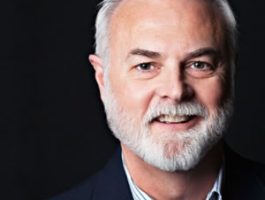
Is Your Teen Walking With Christ?
Even parents who do everything right to bring their kids up to have a strong faith have no guarantee it will "stick." Jessica Thompson talks about how she faked it to look like a Christian kid, even though she wasn't. Don Whitney tells an encouraging story about the tiny deposits you put into your "Oaks of Righteousness."
Show Notes
About the Host
About the Guest
-
Even parents who do everything right to bring their kids up to have a strong faith have no guarantee it will "stick." Jessica Thompson talks about how she faked it to look like a Christian kid, even though she wasn't. Don Whitney tells an encouraging story about the tiny deposits you put into your "Oaks of Righteousness."
-
Dave and Ann Wilson
Dave and Ann Wilson are hosts of FamilyLife Today®, FamilyLife’s nationally-syndicated radio program. Dave and Ann have been married for more than 38 years and have spent the last 33 teaching and mentoring couples and parents across the country. They have been featured speakers at FamilyLife’s Weekend to Remember® marriage getaway since 1993 and have also hosted their own marriage conferences across the country. Cofounders of Kensington Church—a national, multicampus church that hosts more than 14,000 visitors every weekend—the Wilsons are the creative force behind DVD teaching series Rock Your Marriage and The Survival Guide To Parenting, as well as authors of the recently released book Vertical Marriage (Zondervan, 2019). Dave is a graduate of the International School of Theology, where he received a Master of Divinity degree. A Ball State University Hall of Fame quarterback, Dave served the Detroit Lions as chaplain for 33 years. Ann attended the University of Kentucky. She has been active alongside Dave in ministry as a speaker, writer, small-group leader, and mentor to countless wives of professional athletes. The Wilsons live in the Detroit area. They have three grown sons, CJ, Austin, and Cody, three daughters-in-law, and a growing number of grandchildren.
-

Don Whitney
Don Whitney has been Professor of Biblical Spirituality and Associate Dean at The Southern Baptist Theological Seminary in Louisville, KY since 2005. Before that, he held a similar position (the first such position in the six Southern Baptist seminaries) at Midwestern Baptist Theological Seminary in Kansas City, MO, for ten years. He is the founder and president of The Center for Biblical Spirituality. Don grew up in Osceola, Arkansas where he came to believe in Jes...more
Elyse Fitzpatrick
Elyse Fitzpatrick is a nationally sought-after speaker and author, speaking at the Gospel Coalition’s conference and Nancy DeMoss Wolgemuth’s Revive Our Hearts. She holds a certificate in biblical counseling and has an MA in biblical counseling from Trinity Theological Seminary. She has authored 23 books and lives in California with her husband, Phil. Learn more at elysefitzpatrick.com.
Jessica Thompson
JESSICA THOMPSON is an author of several books including Give Them Grace: Dazzling Your Kids with the Love of Christ and frequent conference speaker. She is part of the podcast Front Porch with the Fitzes, and is the director of church life at RISEN Church in San Diego, California.
Ken Hemphill
Kenneth Hemphill was born April 17, 1948; in Morganton, North Carolina. His bride of 45 years is Paula Moore of Greenville, South Carolina. Ken is the proud father of three daughters: Kristina, Rachael, and Katherine, and is now the “Papa” of eight grandchildren. After graduating with a Bachelor of Arts degree from Wake Forest University in 1972, Ken later earned three consecutive degrees; a Master of Divinity and Doctor of Ministry degree from Southern Baptist Theological Seminary, and a Do...more
Even parents who do everything right to bring their kids to faith have no guarantee it will “stick.” Dennis Rainey, Ken Hemphill, Jessica Thompson, Elyse Fitzpatrick and Don Whitney share wisdom learned from experience.
Is Your Teen Walking With Christ?
Bob: Every parent wants compliant obedient children; right? Jessica Thompson says there is a danger when you’re raising that kind of child.
Jessica: Being a good kid doesn’t equal being a Christian. I think there is a way to talk to kids, telling them over and over again: “Your goodness will never be good enough. You need the goodness of Jesus Christ. You need His righteousness alone to stand before a Holy God.” So, to tell your kids, “Put your own goodness away and trust and rest in the goodness of Jesus Christ on your behalf.” That’s a message that our kids need to hear so that we’re not raising Pharisees and legalists.
Bob: This is FamilyLife Today for Tuesday, April 18th. Our host is the President of FamilyLife®, Dennis Rainey, and I'm Bob Lepine. Are your kids getting the right message from you, as you raise them to love and obey Jesus?
1:00
We’re going to talk about our kids’ spiritual formation today. Stay with us.
And welcome to FamilyLife Today. Thanks for joining us on the Tuesday edition. We were talking, earlier, about a survey that we had done a number of years ago—a really significant survey. We talked to more than a 100,000 people; right?
Dennis: Right.
Bob: We were asking them all kind of questions about marriage and family. One of the questions was, “Where do you need the most help in your parenting?” The answer that came back was, “It’s really the spiritual development / the spiritual formation of our kids where we feel like we need help.” So, as a ministry, we’ve been focused, over the years, in trying to make that a strong part of what we provide for moms and dads—
2:00
—whether it’s through resources like the Resurrection Eggs®—that were just recently used by a lot of families, coming up to the Easter holiday—or resources like Passport to Purity® and Passport to Identity™ used with teens. We’ve been trying to take real life events that we all go through and say, “Is there a way to use this as a springboard for a spiritual conversation?”
Dennis: Yes; in fact, I don’t think they’ll mind me saying this; but we’ve been focused on the family. [Laughter] Jim Daly will love that—and that he got some press, here on FamilyLife Today.
Bob: They’ve been focused on the family as well. [Laughter]
Dennis: They have; no doubt about it. [Laughter] But that’s what a parent’s assignment is—you are to introduce your son or daughter to who God is. You need to understand they are going to get their first glimpses of who God is from you,—
Bob: Yes.
Dennis: —and your spouse, and your family. Make sure you are being intentional about doing a good job of coming out of the Bible and making sure the God you are introducing them to is the God of the Scriptures.
3:00
Bob: You have often quoted Psalm 78, which is a Psalm about passing on a spiritual legacy. I’ve heard you say the assignment for parents is to tell your children the truth about who God is; but then, also come along and tell them about how your own history / your own life has been marked by God.
Dennis: Yes; you don’t want to just pass on truth. You want to pass on your experience of who God is that is based on the truth of Scripture. The command there in Psalm 78 is for us to do both——give them the precepts, give them the commandments, teach them the very essence of what the Bible is talking about in our character formation—choosing what’s right / not what’s wrong; being wise / not a fool—yet, at the same time, to pass on how you experienced God in the marketplace today / how you experienced God on another day, other than just Sunday, Bob.
4:00
That’s where Christian parent’s, I think, need to become much more intentional and purposeful in letting kids into the interior / into their souls about how they are finding God every day and how God’s using them is some of the situations that they’re in.
Bob: Later this year, we’re going to be celebrating our 25th birthday, here on FamilyLife Today. Our program went on the air in November of 1992. As we head up to that 25th birthday celebration, we have been taking topics—like the spiritual development of your children—and going back and finding people who have spoken on that subject over the past 25 years / pulled out some of the significant statements people shared with us during that time period. One of the things that you shared, years ago, on this subject is something that I’ve seen in surveys today. A lot of kids today, growing up in Christian homes, are hitting the teen years or heading off to college and rejecting their Christian background.
5:00
One of the things you said, years ago, was: “It’s vital for a mom and dad’s faith to be authentic if we want our children’s faith to be authentic.”
Dennis: I’m not going to tell you how long ago this was said; but it points out to the timeless truths of Scripture, Bob.
[Previous Interview]
Dennis: You can talk about the Bible, you can teach the Bible, you can have kids memorize verses from the Bible; but, if your life is not living the life in front of them that is obedient to the Bible and the God of the Bible, then it’s contradictory—they’re getting a mixed signal. I think one of the tragedies today is that Christian parents send this mixed signal to their kids, thinking that they’re doing the right thing—by taking them to youth group, taking them to church, getting them in a Bible Study—
6:00
—while the parents are making choices that are contrary to the Book the kids are reading. The kids are reading it, and they’re looking at their parents’ lives; and the parent’s life is not authenticating the Book they’re reading.
I think what God wants of us, as parents—he wants us to model / to demonstrate the Book in front of our kids. That means admitting our sins, admitting our faults, and confessing our sins to our kids. Our kids have seen Barbara and they’ve seen me come to them and say: “I’m sorry. Will you forgive me? The Lord convicted me that I spoke harshly to you,” “…I spoke out of anger,” or “…I didn’t have the right attitude to you in that conversation.” They’ve heard that, repeatedly, over the years. And you know—I don’t know, Bob, what God uses in bringing kids to make their faith their own; but I do know that a parent—who isn’t living it but is pointing his kids to it—
7:00
—is an obstacle at that point. How can he impart something he doesn’t possess at that point?
[Studio]
Bob: I’ll let our listeners know—that was you, 20 years ago, talking about the importance of parents walking the talk. We see the surveys today—the kids who are walking away from the faith—the number one thing they’re saying is: “It wasn’t real at home. My parents talked about it, but they didn’t live it.” Nothing will turn a kid sour to the gospel like a hypocritical parent.
Dennis: I’m thinking of a guy, who I was in a Bible study with, who shared this story that had happened the previous Saturday with his, I think, young teenager—13- or 14-year-old son. The phone rang, and it was for the father. The teenager said: “Hey Dad! It’s for you.” He said, “Tell them I’m asleep.”
8:00
The teenager kind of had his hand over the mouthpiece and goes, “But Dad, you’re not asleep.” The dad goes: “Oh here! Give me that phone!” Well, what did the father just say to his son? “Do as I say; don’t do as I do.” He just modeled the wrong thing for his teenager. So, what’s the teenager going to do when he’s caught in a pickle? Will he be tempted to lie?
Someone has said, “Your life can be the doorway through which sin gains entrance into your home.” I’ve always liked that quote, even though it’s kind of cutting; because it puts the responsibility where it belongs on us, as parents, to make sure our lives aren’t necessarily perfect—we’re not going to do it perfectly—but when we fail, we have to have the ability to repent. As I said there, in that previous clip, my children heard me admit more than once: “Your mom and I are having an argument, and we’re going to settle this.
9:00
“I’m wrong—I’ve raised my voice. I asked her to forgive me. Just—we’ll work it out. We’re not going anywhere; okay?”
Bob: Yes.
Dennis: Those are the moments that authenticate. I think—I think they authenticate your faith, if you’re real about it.
Bob: A dad can go back—like the one you described—can go back to his son, later, and say: “I shouldn’t have asked you to lie for me. That was wrong. Will you—
Dennis: Right.
Bob: —“forgive me for putting you in that position?”
Dennis: It’s not too late, at that point, Bob.
Bob: At that point, you’re modeling the gospel—you’re saying: “God forgives us. I’m asking you to forgive me. Let’s make this right.” You teach your child that we all sin and there is forgiveness in Christ.
Dennis: Pride is an interesting thing—it will keep us from admitting we’re wrong. In the process, we’re passing on the wrong picture to our kids.
Bob: We had a guest, who described this phenomenon of—James calls it double mindedness—where you say one thing but your life doesn’t reflect what you’re saying.
Ken Hemphill, who is an author and a speaker, described that as Narnia Christianity.
10:00
[Previous Interview]
Bob: When you talk about nominal Christians, you’re not just talking about Christmas and Easter Christians; right?
Ken: No; no. Here was the thing that stunned us in this study—this was a national study—huge study. When they used “nominal”—we oftentimes, if we’re church folks, we kind of think about that Easter guy and maybe once-a-month kind of show up—but they were talking about people that were engaged—they were talking about Sunday school teachers, and deacons, and elders. They were in church, but the fact was—church didn’t—never transitioned to being in the home.
The image I’ve used—that people have picked up on is—it’s kind of a Narnia Christianity. These kids go to church—they step through a door in a wardrobe somewhere, and they enter church world. These kids would say, “I believe the Bible is true”; but they didn’t relate the Bible to real world and real history.
11:00
They would see that their parents come home from church—they may, in fact, dissect the pastor on the way home; now, they stood at door and said, “Great sermon!” But on the way, they’ve devoured him once again. They get home—the way they treat their kids / the way they treat their business employees does not connect with anything they heard from the pulpit. What has happened is—these evangelical teenagers, have partitioned life—they go to Narnia—go through the wardrobe / go into this unreal world—then they come back to the rest of the world. That’s the danger.
[Studio]
Bob: I think it’s so important for our faith to be—well, the Bible calls it a living faith. It’s not a part-time faith / it’s not a compartmentalized faith—it is a consuming faith, and it reprioritizes everything in our lives.
Dennis: Bob, you know, you speak at the Weekend to Remember® marriage getaway.
12:00
The audiences that are coming are younger and younger to our conference—almost
50 percent are 39 and under—that are coming to our Weekend to Remember marriage getaways. I think a part of why they’re coming is because they really want to know: “What does an authentic relationship between a husband and a wife look like? Talk to me straight about it. Talk to me about how you handle failure—how you do repent to God but, also, to your spouse in a relationship.”
What I think a lot of parents don’t realize—they’ve got a chance to perform the Weekend to Remember every day in front of their kids, showing them how two imperfect people disappoint each other / don’t meet expectations, but who turn to their spouse and say, “Will you forgive me for being short?”—like I did day before yesterday with Barbara—none of my kids were there—[Laughter]—they’re gone now. I used to do that when they were there.
13:00
Some people say, “Well, you’re diminishing yourself if you’re admitting a failure.” I view it just the opposite. I think your kids are looking for the real deal. Now the question is: “Are you willing to get real?”—first of all, with God—because it can’t’ be just for the kids.
Bob: Right.
Dennis: It has to be a real relationship with Almighty God, where you’re saying, “You know, God, I’m sorry.” A good question for every parent listening—and for that matter, every single person / every married person that doesn’t have kids yet—is: “When’s the last time you asked God to forgive you?” or “…you confessed a sin?’ or “…you admitted to Him you’d done something wrong? When’s the last time you did that?” I think the Christian life is a process of admitting those things, as they occur / staying in a right relationship with God, and teaching your kids to do the same.
Bob: We had a couple of guests, who joined us on FamilyLife Today, a while back—
14:00
—the daughter, Jessica Thompson, along with her mother, Elyse Fitzpatrick. Jessica told us that she had been faking her faith during her high school years and into college. Her mom said: “I had no idea. I thought what we were seeing in her was genuine.”
[Previous Interview]
Elyse: When she came home that night from Bible college and she said to me, “Mom, I got saved today,” I—It didn’t even register in my mind what she was saying. It was shocking to me that, all these years, this girl—who, when she was in kindergarten, won Miss Christian Character; she went on mission trips; she was in the youth group; one of the leaders of youth group in Bible college—
15:00
—all the time, faking it; because she wanted my approval and the approval of the family—coming from a ministry family—
Dennis: Right.
Elyse: —the approval of the family—and I was utterly astounded.
Bob: Did you know, when you were faking it, that you were faking it?
Jessica: Yes; I did. For sure, I knew.
Dennis: Did you have doubts?
Jessica: I mean, I don’t even know if I thought that deeply about it to be real honest. I think I thought, “This is what everybody else is doing, and that’s fine; and I don’t want people bothering me.”
Bob: “I’ll play the game.”
Jessica: “I’ll play the game. I will play the game—I will get all the awards and everybody will love me.” Yes, that’s more of where I was at.
[Studio]
16:00
Bob: You know, I think any parent has asked themselves the question, as they’ve looked at an obedient / compliant son or daughter: “Is this child faking something here? Are they just saying, ‘Yes, Mom,’ / ‘Yes, Dad,’ until they can get out of the house and then are they going to go the opposite direction?” We thought that with some of our kids—we thought, “Are they just stringing us on until they’re 18 and off at college and, then, we’re going to see what’s really going on in their lives?”
Dennis: So, what about you—did you fake it?
Bob: Well, I wasn’t it first—so it wasn’t that I was faking my faith / I was faking being a good kid—but every good kid is faking being a good kid, because every good kid has got a little larceny working. Don’t you think? [Laughter]
Dennis: Like the test?
Bob: Like the Latin test.
Dennis: Yes.
Bob: But it is just—
Dennis: You’re brilliant in Latin; right?
Bob: You want a little true confession here?
Dennis: This will be good—maybe your teacher is listening.
Bob: No; Mrs. Lau has since gone on to her reward. [Laughter] She never knew.
Dennis: If she had you in her class, she needed a reward. [Laughter]
Bob: She did need a reward. I was not studying hard in Latin, and it—
Dennis: Really?
Bob: —it does not come by osmosis. You must study to do well.
Dennis: So how did you pass the class, Bob?
Bob: Somebody called me right before the final and said: “I’ve got the test for tomorrow. Do you want to come study the test?”
Dennis: Bob!
Bob: I went and I–
Dennis: Did you—
Bob: —I studied the test. Then later, my mom said, “I’ve been telling you, all semester, you would get better grades if you’d study with your friends.” I didn’t have the heart to tell my mom the reason I got a good grade was because I knew the answers to the test before I went in. So, yes, I cheated in high school / I lied in high school; but that’s true for everybody; isn’t it?
Dennis: I think it is, Bob. Who hasn’t faked it, going to church?—where you’ve had an argument on your way to church [Laughter] with your spouse or with your kids. Maybe you’ve been somewhat of a Grinch—
18:00
—you know, a grumpy human being—you walk in: “Oh, God bless you, pastor. It’s good to see you. Isn’t God good?” You’ve—you know—there’s a lot—
Bob: —lot of faking going on—
Dennis: —lot of faking it—
Bob: —whole lot of faking going on.
Dennis: —that takes place. Yet, with our kids, what’s the truth?—they see it. So, here’s the truth—If you fake it in front of your kids, you’re inviting them, I think, to fake it back to you—but also with God. That’s why we’re losing / a part of the reason why, I think, we’re losing a generation of young people, who graduate from high school / college and aren’t’ showing back up at church.
Bob: There’s one final story that we want our listeners to hear that I think will be a great encouragement for parents who are trying to be faithful as they raise their children. Let me remind folks that, in our FamilyLife Today Resource Center, we’ve collected, over the years, a number of resources that we point parents to regularly—
19:00
—things like Dr. Bruce Ware’s book, Big Truths for Young Hearts; or Sally Lloyd-Jones’ beautiful Jesus Storybook Bible; or other resources—Phil Vischer has a video series that we’ve recommended to parents called What’s in the Bible? that helps teach your children what’s in the Bible. There are resources for older children as well—things like Passport to Purity® and Passport to Identity™ that parents can use to connect with the heart of their preteen or their young teenager.
Go to our website, FamilyLife Today.com, and look at some of the resources we have there. I just encourage you to find something that you can start using at home to supplement what you may already be doing. If there’s not much going on, pick out a resource and put it to work in your home—start reading at the breakfast table, or the dinner table, or at bedtime, or whatever works for your family.
20:00
Go to FamilyLifeToday.com to view some of the resources available to help your children grow spiritually; or call if you have any questions at 1-800-FL-TODAY / 1-800-358-6329—that’s 1-800-“F” as in family, “L” as in life, and then the word, “TODAY.”
Dennis.
Dennis: You know, Bob, I think this has been an encouraging series of broadcasts to revisit here; because there’s a lot of parents who just—they don’t need a kick in the seat—they need somebody to put an arm around them and say: “You can do this.
Bob: Yes.
Dennis: “C’mon; you can do this.”
I just also want to put my other arm around the Legacy Partners, who make this broadcast a reality here every Monday through Friday—some who have been with us for 15 years / 20 years, monthly giving to FamilyLife Today, so that this broadcast can carry the truth—about Jesus Christ, about God, about marriage and family—to a brand-new generation. I just want to say, “Thanks,” to those Legacy Partners for doing that.
21:00
Bob: We want to remind everybody that your faithfulness, as a parent, as you’re raising your children—your faithfulness in teaching and sharing the gospel with your kids—will not go unnoticed even, if at the time, it appears like your kids aren’t paying a bit of attention to what you’re saying or what your trying to teach them. In fact, Dr. Don Whitney, who teaches at Southern Baptist Theological Seminary, was a guest, not long ago, on FamilyLife Today. He shared a great story about how he had seen his faithfulness rewarded at his daughter’s graduation.
[Previous Interview]
Don: At the Christian school, where she graduated, it was the tradition for the parents to present the diploma to their child. Then, they would make some remarks, encouraging the child, and congratulating them as a graduate, and blessing them there.
22:00
Then the graduate would, in turn, speak some prepared remarks to the parents, thanking them and so forth. My daughter thanked my wife and said a number of very precious things to her. Then, she turned to me and she began by saying how much family worship had meant to her. But she never got finished; because she just collapsed on my shoulder, in cap and gown, in tears.
Dennis, I’m not exaggerating when I say, “She wept harder than I had seen her since she was a preschooler.” The picture of us, together, is my favorite picture of the two of us. She gave me, later, the transcript of what she had prepared; and it was thanking me for what family worship had meant to her. Now, lest your listeners misunderstand—they may think that that means, when we had family worship, she sat in rapt attention, with her hands folded, and some cherubic look on her face.
Dennis: Yes; she actually—I read what she said.
23:00
It actually, sounded like you didn’t miss a day in her life since the time she was—
Don: Well, her memory was off there. [Laughter]
Dennis: Yes.
Don: But you know what? In the thousands of nights that led up to that graduation, you know what it was actually like? I mean, not one time ever would I have walked away from family worship, saying [in an authoritative voice]: “Oh, the Spirit of God came in great power upon us tonight. We’re on our faces before God. The Spirit’s presence was just atmospheric in our home.” Never would I have said that. Most of the time, I would have walked away, saying: “I wonder if that did any good, [Laughter] whatsoever. I wonder if anything happened.” There was nothing remarkable, ever.
Dennis: You wondered if they listened.
Don: Exactly! You know what it’s like until this day? I mean, she’s married and has her first child of her own now. And to this day, when they come home, we have family worship in our home. You know what it’s like? “Hey, would y’all put your phone down please? We’re trying to have family worship. Would y’all listen up? I’m trying to read the Bible here.” That’s the way it always was / that’s the way it always is. When you have a family in the family room, doing family worship, they do what families do in the family room.
24:00
The three-year-olds are rolling around on the floor, and they’re being real families. Yet, you do this, night after night / year after year, and the Word does its work. God may do things that you never imagined He was doing.
Dennis: But the lesson is—you didn’t quit.
Don: That’s right; didn’t quit. You know, the Bible says we’re raising “oaks of righteousness.” You don’t grow an oak with an occasional brush into the soil and an occasional brush with water. It takes the long, prolonged exposure to the elements that are unremarkable that produces the oak.
FamilyLife Today is a production of FamilyLife, a Cru® ministry.
Help for today. Hope for tomorrow.
We are so happy to provide these transcripts to you. However, there is a cost to produce them for our website. If you’ve benefited from the broadcast transcripts, would you consider donating today to help defray the costs?
Copyright © 2017 FamilyLife. All rights reserved.
1


